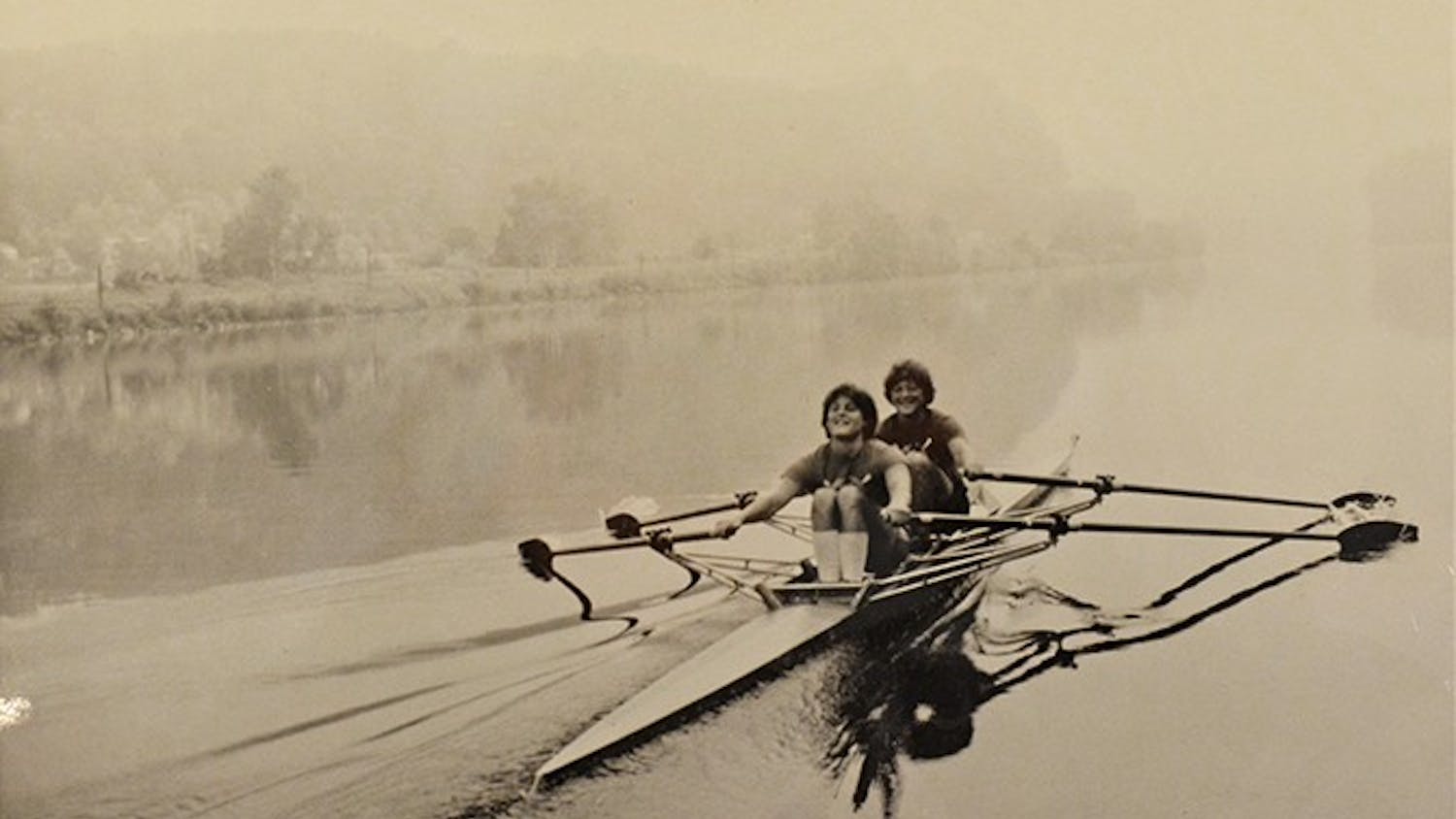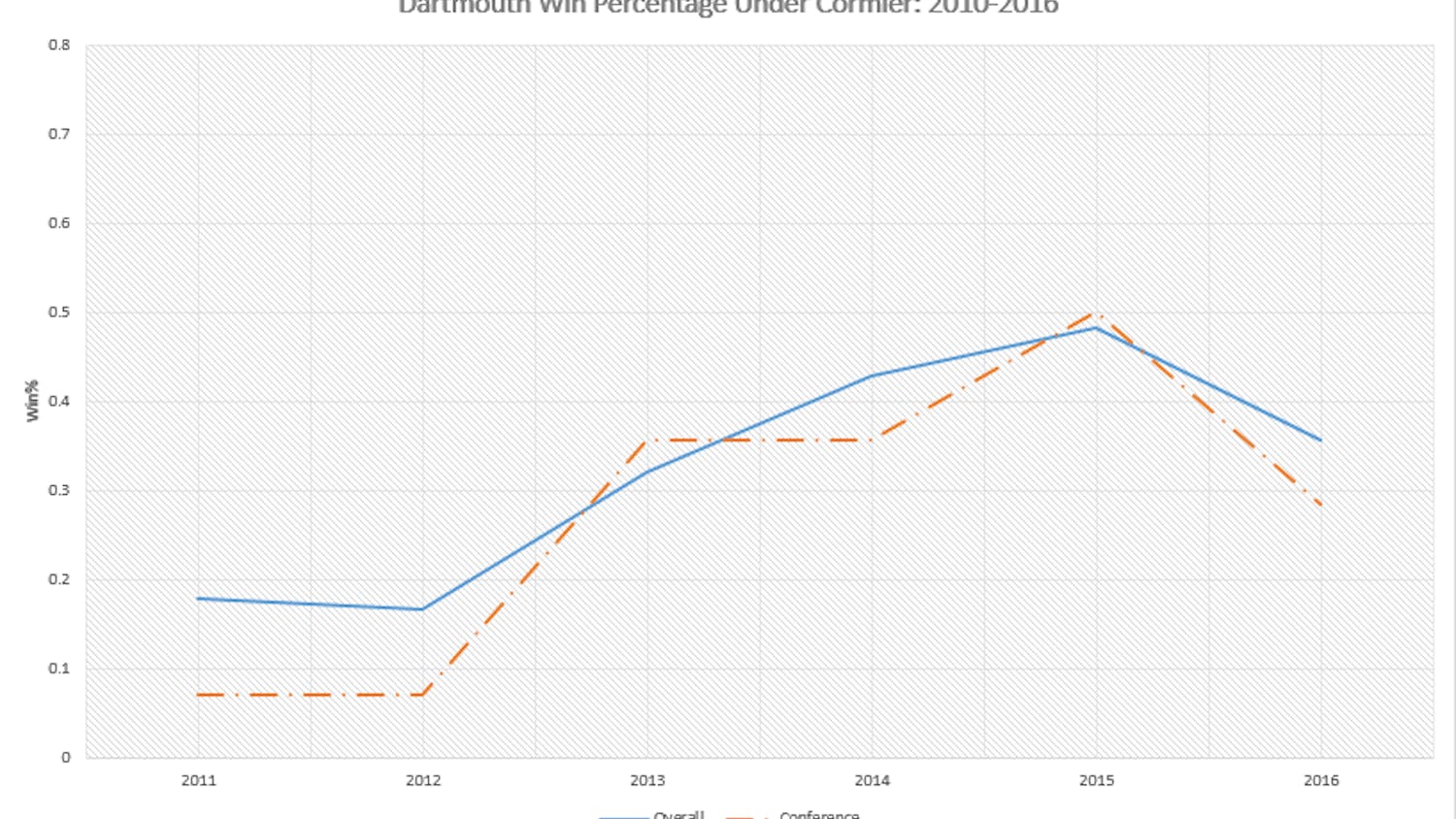“I could’ve done better.” For a long time, that thought has been nestled comfortably into my headspace, surfacing with frustrating regularity. It’s what I told myself after every high school debate tournament in which I couldn’t conquer my anxieties, after every column I’ve written for The Dartmouth that didn’t convey the eloquence I wish I had, after every exam, every race, every interview. Recently, it’s a conclusion to which I’ve returned repeatedly when reflecting on my Dartmouth experience.
I’ve spent a lot of time this term trying to weigh the regrets I had about my time on this campus against the ways in which I felt like I’ve succeeded here, throwing everything onto an imaginary scale to figure out if I was at a net negative or net positive. On countless late nights, I’ve wondered if I did Dartmouth the “right” way, and where I would be had I made different decisions, chosen different paths.
Perhaps my biggest regret is that I never came to feel like I belonged here. Freshman fall, I joined the rowing team longing for a community of women whose strength and resilience would ground me. A year later, I still felt invisible, and I craved an environment in which I could make a difference.
I decided to rush my sophomore fall, not because I truly bought into the Greek system, but because I lacked alternatives and I was curious about what an all-female social space had to offer. The rush process was overwhelming and disingenuous, but I reluctantly accepted a bid. At the time, I couldn’t afford to alienate myself from a system that is so deeply entrenched on this campus and which I perceived as the main vessel to social inclusion. I retained hope that I could learn to comply with Dartmouth’s social canons — that if I rendered myself malleable enough I would start to fit in.
That winter, I left campus to study abroad in Paris. Thousands of miles away from Hanover, I spent a lot of time in my own head, and I began to find myself. I gained the confidence I needed to realize that I was capable of carving my own way through Dartmouth, one where I stopped relying on social or athletic institutions in which I didn’t feel I belonged. I quit the rowing team and I de-pledged my sorority, somewhat terrified at the prospect of starting over but knowing that I needed to be on a different path. I wanted to build friendships that weren’t based on the name of a team or the letters of a house, and I wanted a college experience free of labels and pretense.
The closest I came to finding community here was through editing The Dartmouth. Starting junior spring, I spent every weeknight in the production room surrounded by dedicated, ambitious, incredible people who’ve had a marked impact on my life. I cared about the work we were doing, and I felt like the time and energy I was investing actually mattered. But once the directorate reached the end of its tenure and we were no longer committed to spending our nights on the second floor of Robinson Hall, part of me felt that the home I’d found was only temporary.
In my four years here, I never found one place to settle in. But regardless of how often I dwell over what I could’ve done better or how many alternate scenarios I imagine, my inability to root myself here has a lot to do with the kind of environment Dartmouth fosters. This campus is both isolated and isolating, holding far too tightly onto traditions and institutions that are long overdue for change. As eye-opening and empowering the liberal arts education students receive here can be, it isn’t enough to offset a culture that nurtures privilege, silences dissent and perpetuates harmful hierarchies.
Had I done things differently, some of the organizations in which I might’ve found community are ones that actively enable this culture. And the Dartmouth I might’ve loved is an institution with which I’ve become increasingly frustrated and disillusioned.
I’m glad I didn’t do Dartmouth “better.” The times when I deviated from norms, the times when I fell and had to get back up, and the times when I’ve had to retrace my steps and take a different route have all made me who I am. I found meaning on this campus once I gained the strength to process my experiences, once I stopped hiding my vulnerabilities and once I started to be unapologetically honest. I’ve found people who’ve shown me kindness, understanding, and support, and I’ve grown most when I’ve been able to show those things to myself.
The “perfect” Dartmouth experience I often imagine wouldn’t have brought me here. I’m proud of who I’ve become, and I’d like to think that I got to where I am less because of, and more in spite of, what Dartmouth really is. I’m grateful for every experience I’ve had on this campus and for every lesson I’ve learned. This weekend, I’ll be walking across the stage confident in the knowledge that my time at Dartmouth happened exactly the way it was supposed to happen.
Ioana Solomon ’19 is the former production executive editor of The Dartmouth.



